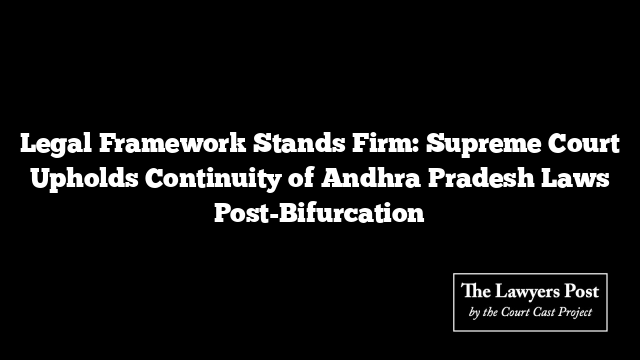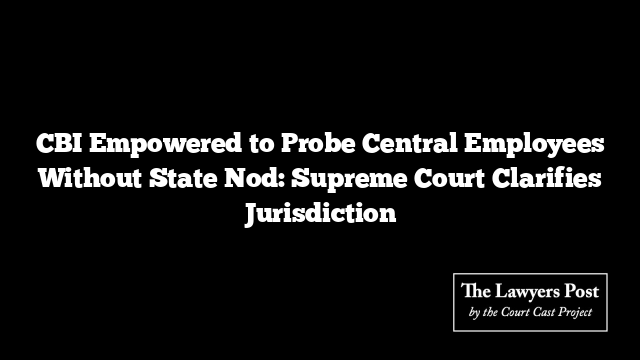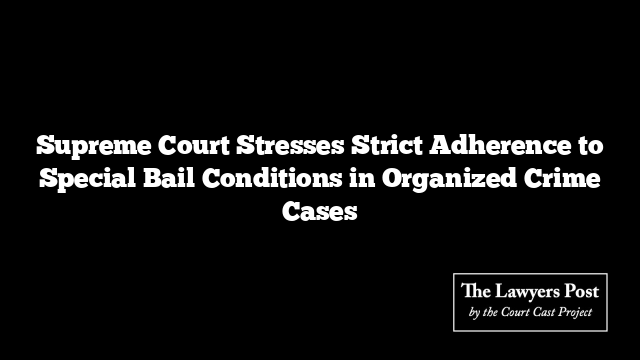The Supreme Court clarified that all laws governing the erstwhile Andhra Pradesh remain applicable to the newly bifurcated states of Andhra Pradesh and Telangana unless formally altered, repealed, or amended.
A bench comprising Justices CT Ravikumar and Rajesh Bindal overturned an Andhra Pradesh High Court judgment that had quashed corruption proceedings based on jurisdictional grounds tied to the state’s bifurcation. The case hinged on whether the consent of the Andhra Pradesh government was required for investigations conducted by the Central Bureau of Investigation (CBI) under the Delhi Special Police Establishment Act, 1946.
Case Background
The cases stemmed from FIRs registered against two individuals for alleged corruption. Both FIRs originated within the boundaries of the new Andhra Pradesh post-bifurcation, with the investigations conducted by the CBI’s Hyderabad branch. The Andhra Pradesh High Court had ruled that investigations were invalid due to the lack of explicit consent from the state government.
However, the Supreme Court disagreed, finding that consent was not necessary in this context, as the accused were Central Government employees and the alleged offenses fell under a Central Act.
Key Findings
The Supreme Court underscored the continuity of laws post-bifurcation, citing precedents from similar cases, including those arising from the bifurcation of Bihar and Jharkhand. It held that laws in effect in undivided Andhra Pradesh continue to operate in both new states unless explicitly repealed or modified.
The Court also addressed procedural concerns, affirming that the CBI’s jurisdiction and the designation of special courts under the Prevention of Corruption Act were valid. It found that the High Court’s interpretation of continuity of laws and procedural requirements was flawed.
Broader Implications
This ruling reinforces the principle that laws remain operative across new political entities formed through bifurcation until amended or repealed. It also clarifies the interplay between Central and State jurisdictions in cases involving Central Government employees and reinforces the legal framework governing bifurcated states.
The judgment serves as a pivotal clarification for governance and law enforcement in bifurcated regions, setting a benchmark for future cases involving state reorganizations.





